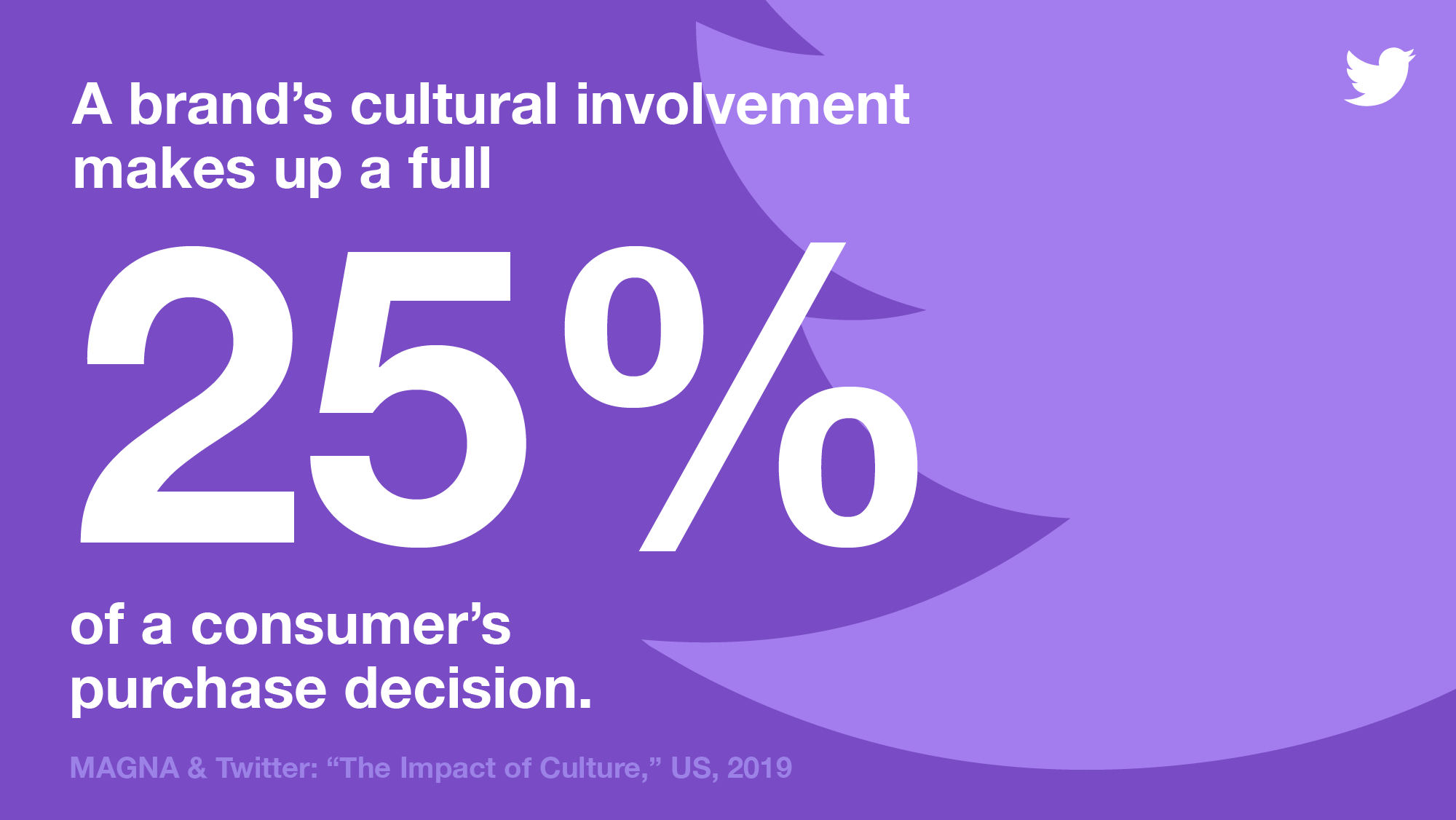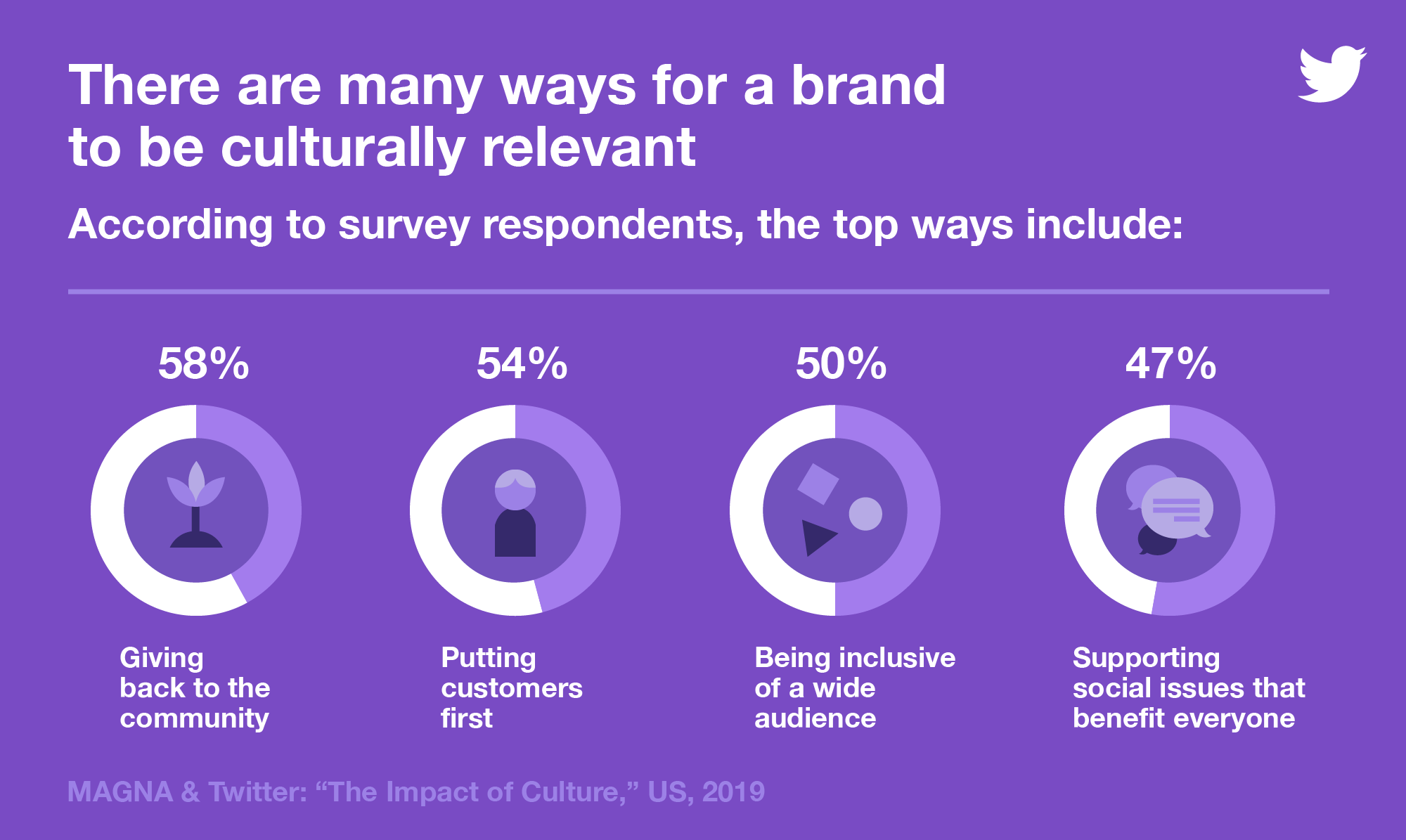A new study shows just how much consumers want brands and culture to mix.
Commerce and culture have always intersected — even though it can be a fine line for brands to walk. But what surprised the research team behind MAGNA and Twitter’s new study, “The Impact of Culture,” was just how much consumers — particularly younger people on Twitter — expect and even want brands to be culturally relevant: aligning well with cultural events, promoting trends that define today’s culture, and supporting social issues that benefit everyone.
Insight-rich results
Brand involvement in culture is especially important among consumers between the ages of 18 and 35, and those on Twitter versus general population are more passionate, informed, and feel more strongly about brands aligning with culture.
Embracing culture by staying current, demonstrating knowledge of consumers, and giving back, the study found, is exactly how brands can become more relevant. When people are deciding which products and services to buy, they’re not only thinking of basics like price and quality — or even more amorphous concepts like reputation.
They are also assessing just how much a brand reflects their interests and supports the issues they hold close to their hearts. Incredibly, a brand’s cultural involvement makes up a full 25% of a consumer’s purchase decision. That means that being involved in culture is a significant consideration when people are weighing whether or not to buy something, alongside other factors like positive brand perception, price, and quality. It’s a finding that should make marketers rethink their focus and strategies, since cultural relevance can be established with one campaign, whereas other factors are relatively more intractable.

While jumping on trends and cultural happenings in realms like sports and music are table stakes for brands, the study reveals that people want to go even deeper: Americans might love their reality TV, but survey respondents say they are more informed on issues like gender equality and fair trade than pop culture events.
What does this mean for marketers?
Go where the most leaned-in and influential people are already gathered: A key revelation of the study is that while culturally passionate consumers tend to be younger, what really sets them apart are their media habits. Social media usage is a 25% stronger indicator of cultural passion than age. According to our study, culture-focused ads work harder on Twitter than on other premium sites, where audiences of true tastemakers are most engaged and most receptive.
Live out the values of your customers: While there are many ways for a brand to be involved in culture, according to survey respondents, the top ways include giving back to the community, putting customers first, being inclusive of a wide audience, and supporting social issues that benefit everyone.

Don’t “stay out of it” in your ads: Culture-focused ads succeed in positioning brands as relevant. They also position them as socially responsible and innovative. And they create a more memorable experience for consumers.
This new research makes a strong case for brands to acknowledge, and even actively improve, the culture that permeates all of our lives so fully. And expressing their engagement with culture on platforms like Twitter is the best way for brands to join the liveliest conversations of the day.
–
This article first appeared in www.marketing.twitter.com
Seeking to build and grow your brand using the force of consumer insight, strategic foresight, creative disruption and technology prowess? Talk to us at +9714 3867728 or mail: info@groupisd.com or visit www.groupisd.com


